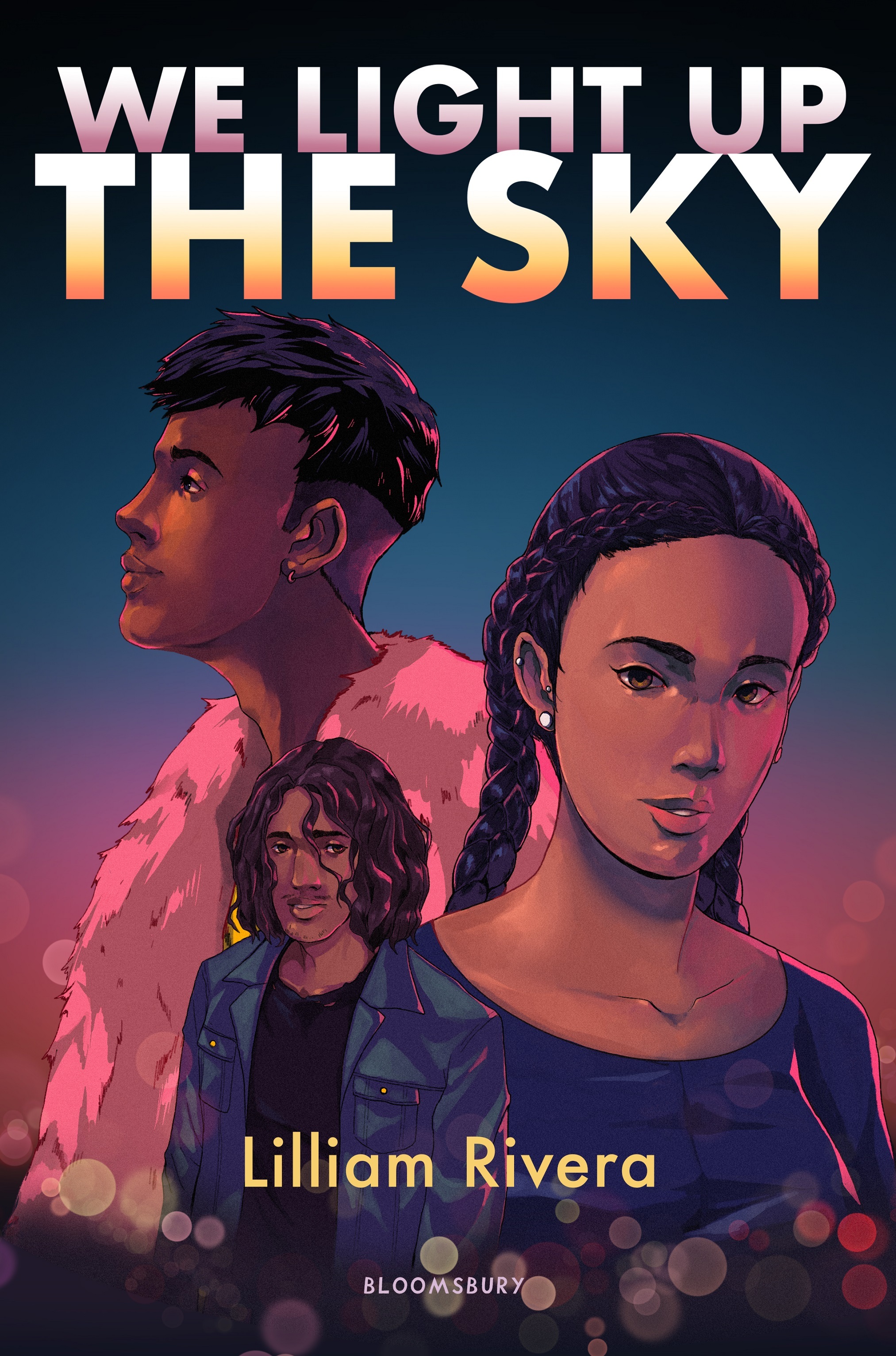This YA Novel Is One of the First to Address the COVID-19 Pandemic

Released earlier this week, We Light Up The Sky tells the stories of three Latinx teens from very different families who suddenly come together after a mysterious alien life form known as The Visitor begins causing a path of destruction through their neighborhood.
"I've always wanted to write an alien invasion story, and I knew I wanted to set it in Los Angeles and focus on these three Latinx or Latine teenagers who all attend the same high school," she said. "I wanted to explore what their lives were like and then have an alien drop in and mess up what were already stressful lives."
When Rivera decided to feature a teen girl grieving the loss of a beloved cousin to COVID-19 in the book, she originally thought the pandemic would be over by the time the book hit shelves. "I didn't have the foresight that it would get darker than I had anticipated," Rivera told the FBomb.
We had the chance to chat with Rivera about her new novel, her decision to weave in several real-life events into the story, and why it is important for teens to see themselves in fiction.
Like so many real-life teens, your character Luna is grieving a loved one who died of COVID. What was it like creating that character knowing that so many of your readers would have a very personal reaction to her story?
I don't know anyone who hasn't had some sort of loss or death or suffered from the virus themselves. But there hasn't been a moment where we have had a chance to collectively grieve everyone that has been lost. We see that with Luna, my character, who is mourning the loss of her cousin Tasha, who died of COVID. It's the anniversary of that death, but Luna is not given the space to grieve. Her friends are like 'you should get over it.' So I felt like it was really important to write about that to through these characters and to allow that conversation to be had.
This is a sci-fi novel, but some of the scariest parts of the book are the real-life problems — like grief, poverty, and homophobia — that your characters experience. What did you want to convey while exploring those themes in this book?
For me, first and foremost, I'm always thinking about the story. The story has to be compelling and a little bit scary, and it should be that you don't want to put the book down because you want to find out what happens next. So it's important that these characters feel really three-dimensional and seem familiar to a young person reading. They should be able to relate to Pedro, they should be able to relate to Rafa, even if they're not from Los Angeles or a brown kid, and even if they are not dealing with homelessness, or grief, or homophobia. You can relate to these kids because you can relate to what it's like to be young and to what it's like being misunderstood.
As you just mentioned, homelessness is also part of this story. Your character Rafa is homeless and lives in a tent but doesn't want anyone at school to know because he wants to be treated like a regular kid. What was it like creating that character at a time when the homelessness crisis in California, in particular, is in the news?
Homelessness is a problem in big cities across the United States. But since I live in Los Angeles, I'm fully aware of the different decisions being made to sort of just sweep this problem aside without any real concrete help for people. My husband is a guidance counselor, and we're always having these discussions about what young people have to deal with today. I've met [my character] Rafa. I've met him throughout my travels and during my school visits. I've met him, and I've seen the burden that's placed on young people. It's just unbelievable at times what you hear when you allow a young person to speak their truth. So for me to write about that, it came fairly easy because I'm aware of that burden of shame that comes from hiding problems that you may be having.
The paperback release of your novel Never Look Back was also this week, and that book was about a teen who lost her home during Hurricane Maria. Why do you think you are drawn to creating stories about teens who persevere after trauma?
Yes, I love writing those kinds of characters, and yes, they do go through a lot of huge issues. There is also often magical realism — Never Look Back is a retelling of a Greek myth interpreted through the eyes of two young Latinos in New York — or sci-fi like in We Light Up The Sky where we have three very different characters and how they navigate the city.
So I guess the theme for me is how the cities or places where these kids affect them and how they are navigating that. What are the kinds of things that they have to deal with within their everyday lives? It's also important for you, the reader, to get to know these characters. Maybe you'll get annoyed a little bit by them. Maybe you'll fall in love with them in a way. But I always want to create characters as realistically as possible because I feel like these are the problems young people are dealing with every single day, aside from the alien invasion. If you take that out of the equation, they are still dealing with things that seem insurmountable at times.
This interview has been lightly edited for length and clarity.
More articles by Category: Arts and culture
More articles by Tag: Books, Latinx



























